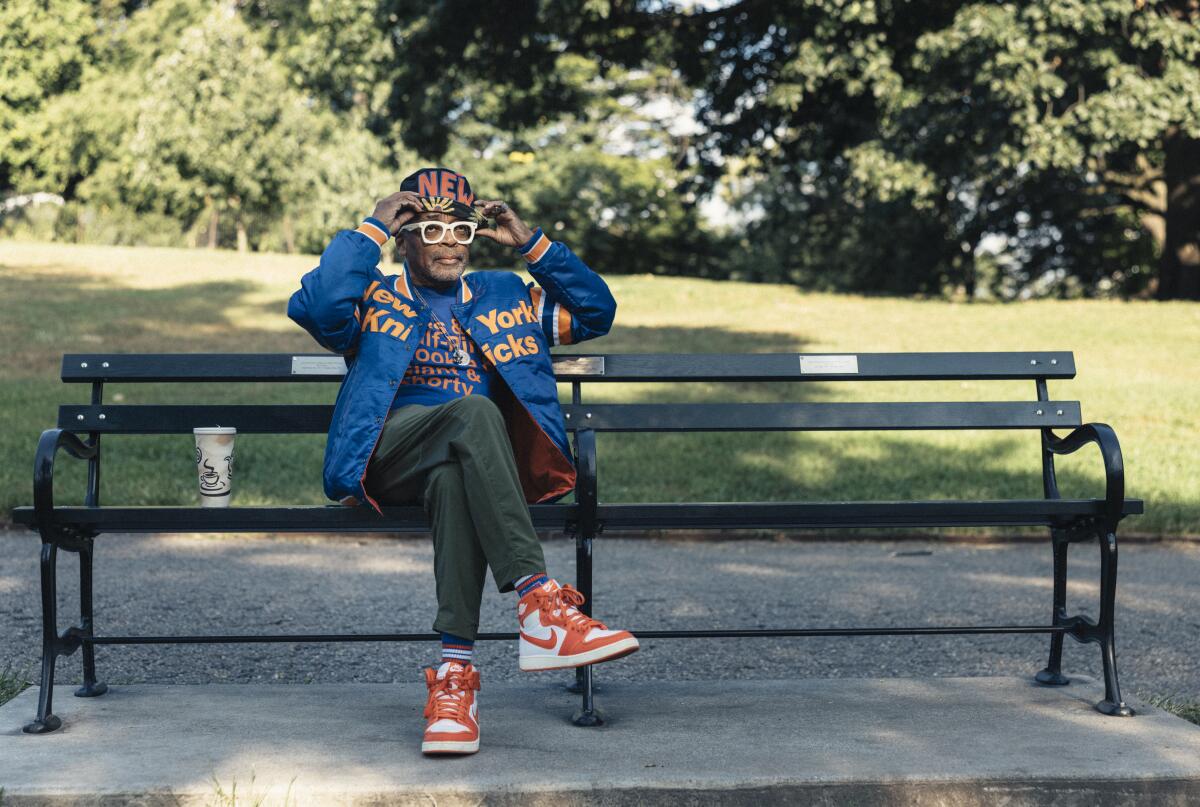Hello! I’m Mark Olsen. Welcome to another edition of your regular field guide to a world of Only Good Movies.
Greg Braxton did an interview with the ever-quotable Spike Lee this week. Lee’s newest film, “Highest 2 Lowest,” starring Denzel Washington, is in theaters next week and begins streaming on Apple TV+ on Sept. 5. Lee will make an appearance at the Egyptian Theatre next Thursday for a Q&A after a screening of the film.
The film is adapted from Akira Kurosawa’s “High and Low,” in which a wealthy businessman believes his son is kidnapped and must scramble to put together the ransom money. When his son is found, it turns out that actually it is the son of his driver who has been abducted. The criminals still want their ransom, creating a moral dilemma for the businessman.
Lee likens the relationship between “High and Low” and “Highest 2 Lowest” to that between the renditions of the song “My Favorite Things” as done by Julie Andrews in “The Sound of Music” and performed by saxophone great John Coltrane.
“It’s a reinterpretation,” he says. “There’s a history of jazz musicians doing reinterpretations of standards. We’re jazz musicians in front of and behind the camera.”
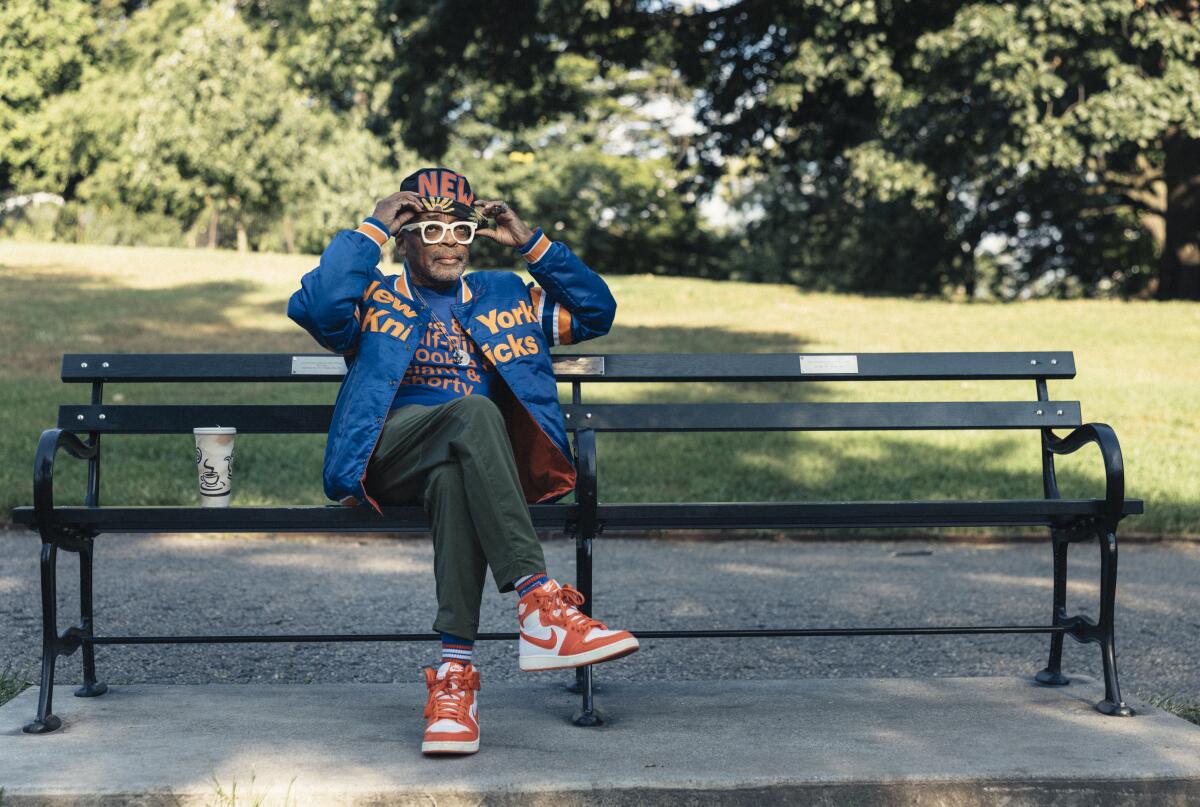
Spike Lee, photographed in New York in July.
(Victoria Will / For The Times)
Likewise, audiences will bring their own feelings to how they would respond to the ethical dilemma at the center of the film.
“That is what makes the whole scenario great,” Lee continues. “Everyone would answer that situation differently. [Toshiro] Mifune laid down the foundation. He handed the baton to Denzel and Denzel took it, and did not miss a motherf—ing stride. You know like those brothers in the Olympics? We don’t drop the baton.”
The new film marks the fifth collaboration between Lee and Washington, a collaboration that also includes “Mo’ Better Blues,” “Malcolm X,” “He Got Game” and “Inside Man.” Lee hopes it won’t be the last. Even at 68, the director maintains an enthusiasm and focus for his work and the future.
“I’m just getting started,” he says. “As an individual and an artist, when you’re doing what you love, you win. I don’t see the finish line, the tape.”
“Highest 2 Lowest” also features a performance by Latin jazz great Eddie Palmieri, who died this week at age 88.
‘Pee-wee’s Big Adventure’ turns 40
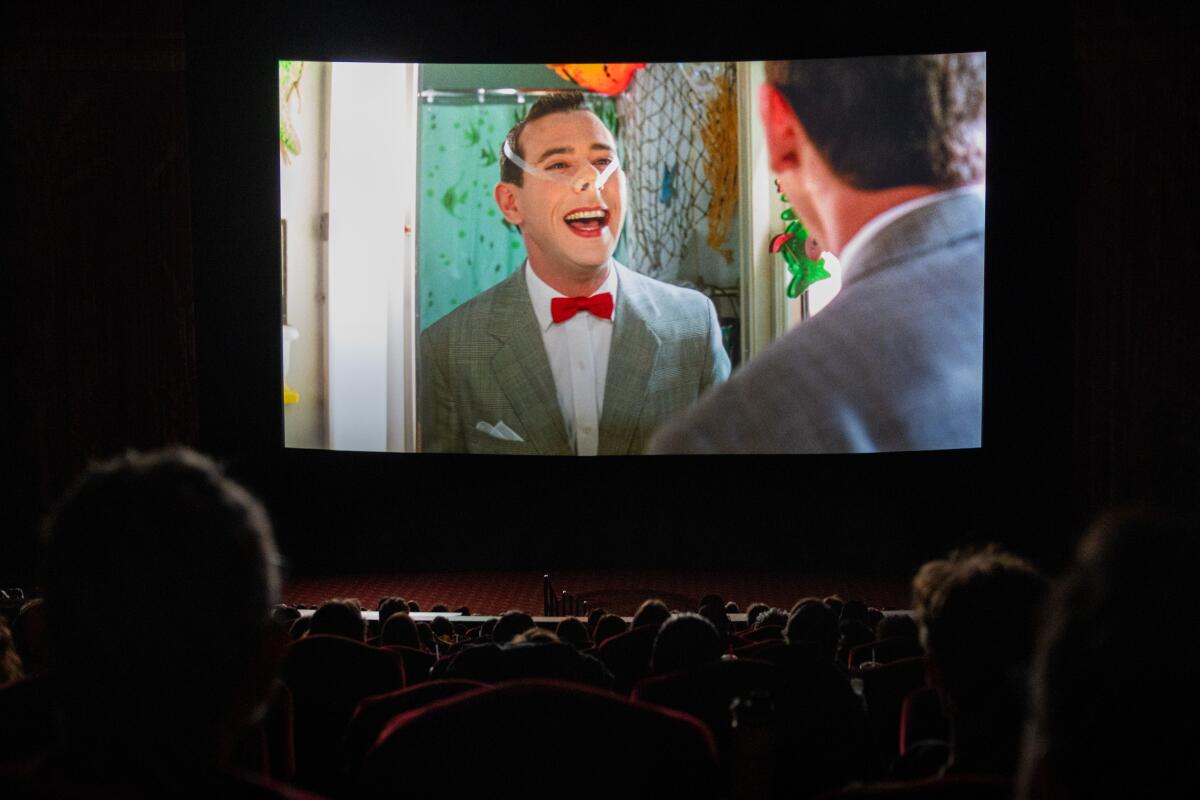
The late Paul Reubens, in his most famous role as Pee-wee Herman, on the big screen at the TCL Chinese Theatre for a special screening of 1985’s “Pee-Wee’s Big Adventure” at 2023’s AFI Fest.
(Jay L. Clendenin / Los Angeles Times)
On Saturday the Academy Museum will present a 40th anniversary screening of Tim Burton’s “Pee-wee’s Big Adventure,” which finds Paul Reubens’ signature character on an epic quest to recover his beloved bicycle. As part of the evening’s program, the actual prop bicycle will be presented to the museum on behalf of Reubens’ estate.
The debut feature of director Tim Burton — who has recently found new success with the series “Wednesday” — “Pee-wee’s Big Adventure” is an endlessly surprising and delightful film, one in which absolutely anything seems possible.
In his original review of the film, Michael Wilmington drew comparisons to Peter Lorre and Soupy Sales in attempting to describe the particular appeal of Reubens’ petulant, perennially childlike character.
“That’s what makes the character work: this sense of absolute, crazed conviction. And it makes the movie work as well — for its own audience,” Wilmington said. “Be forewarned: This film is not for anyone whose taste in humor runs only to silky Oscar Wildean epigrams or naturalistic comedies of the ‘Tootsie’ school. The wrong crowd will find these antics infantile and offensive. The right one will have a howling good time.”
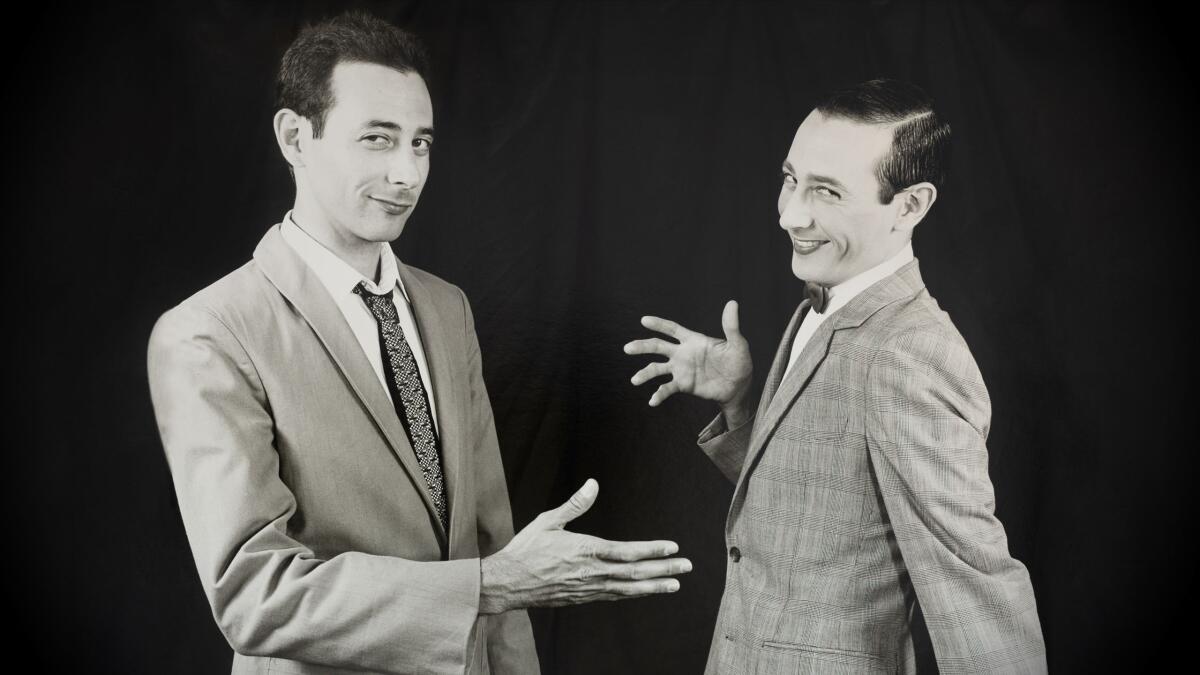
Paul Reubens in the HBO documentary “Pee-wee as Himself.”
(Dennis Keeley / HBO)
The recent documentary “Pee-wee as Himself,” Matt Wolf’s startlingly intimate documentary on Reubens, includes recordings made just a few days before his 2023 death and is currently nominated for five Emmy awards.
The film explores Reubens’ life and how the explosive popularity of the Pee-wee character came to overwhelm him.
“We’re all entitled to our inner lives,” Wolf said in an interview for the paper with Dave Itzkoff. “Artists, particularly, are many different people inside. Paul was no exception, except the way he went about that was more extreme than perhaps you or I.”
‘Children of Men’ in 35mm
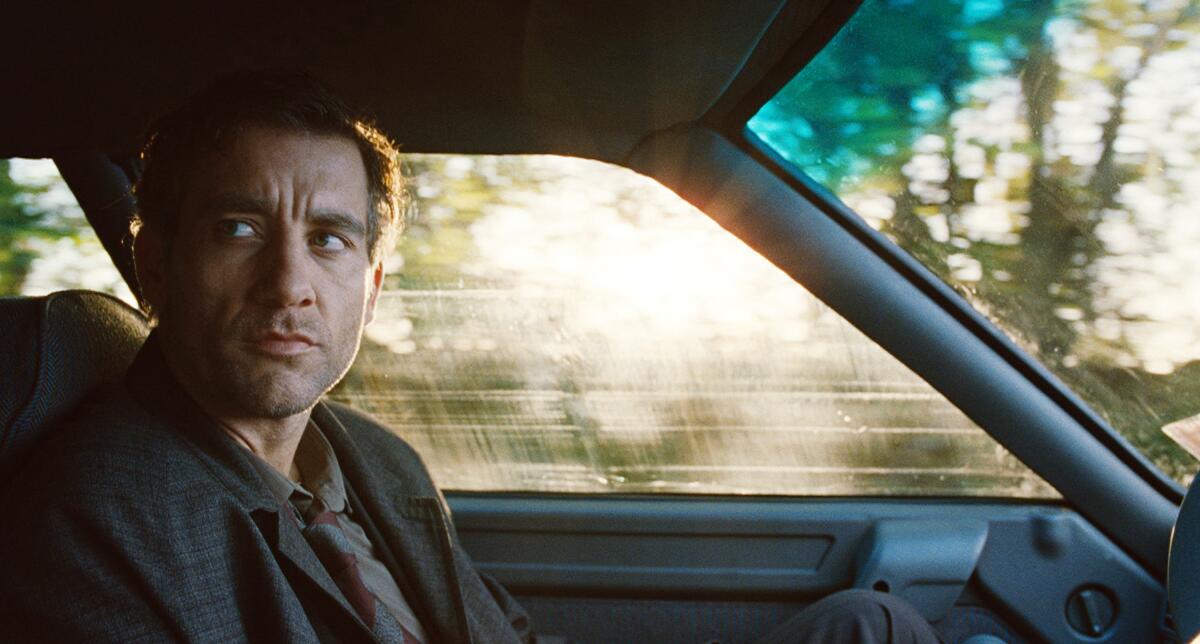
Clive Owen in the movie “Children of Men.”
(Jaap Buitendijk / Universal Pictures)
Alfonso Cuarón’s 2006 “Children of Men,” will screen at the Academy Museum in 35mm on Wednesday. (Frankly, the movie does not play out nearly often enough.) As part of the museum’s ongoing Branch Selects program, “Children of Men” was selected by the cinematographers branch in recognition of the work by Emmanuel Lubezki, whose work here is staggering for how often it hides the difficulty of what is being accomplished, creating a sense of naturalism amid complicated technical achievements.
Set in 2027 Britain, the film presents a frightening scenario in which no child has been born on Earth for 18 years. Theo (Clive Owen) is a former activist-turned-disillusioned bureaucrat resigned to a staid hopelessness. An encounter with his former lover Julian (Julianne Moore), who has become even more of a militant, leads him to shepherding a young woman named Kee (Clare-Hope Ashitey) to safety. She is well along in a secret pregnancy that could literally save the world.
In reviewing the film, Kenneth Turan wrote, “The best science fiction talks about the future to talk about the now, and ‘Children of Men’ very much belongs in that class. Made with palpable energy, intensity and excitement, it compellingly creates a world gone mad that is uncomfortably close to the one we live in. It is a ‘Blade Runner’ for the 21st century, a worthy successor to that epic of dystopian decay. … This is a world of rubble, fear and hopelessness whose connections to our own are never forced; Cuarón is such a fluid director with such a powerful imagination, they don’t have to be. This could well be our future, and we know it.”
Kevin Crust wrote a piece spotlighting the use of sound and music in the film, noting, “After a provocative ending that keeps audiences in their seats for the credits, ‘Children of Men’ continues to reward aurally, finishing strongly with two politically pointed songs. Leaving us with Lennon singing the anti-nationalist rant ‘Bring on the Lucie (Freda Peeple)’ and Jarvis Cocker declaiming global society’s ills with an unprintable refrain in ‘Running the World,’ Cuarón emphasizes the timelessness of this future-set film and stamps it with a humanistic double exclamation point.”
Points of interest
‘The Heartbreak Kid’ is back again
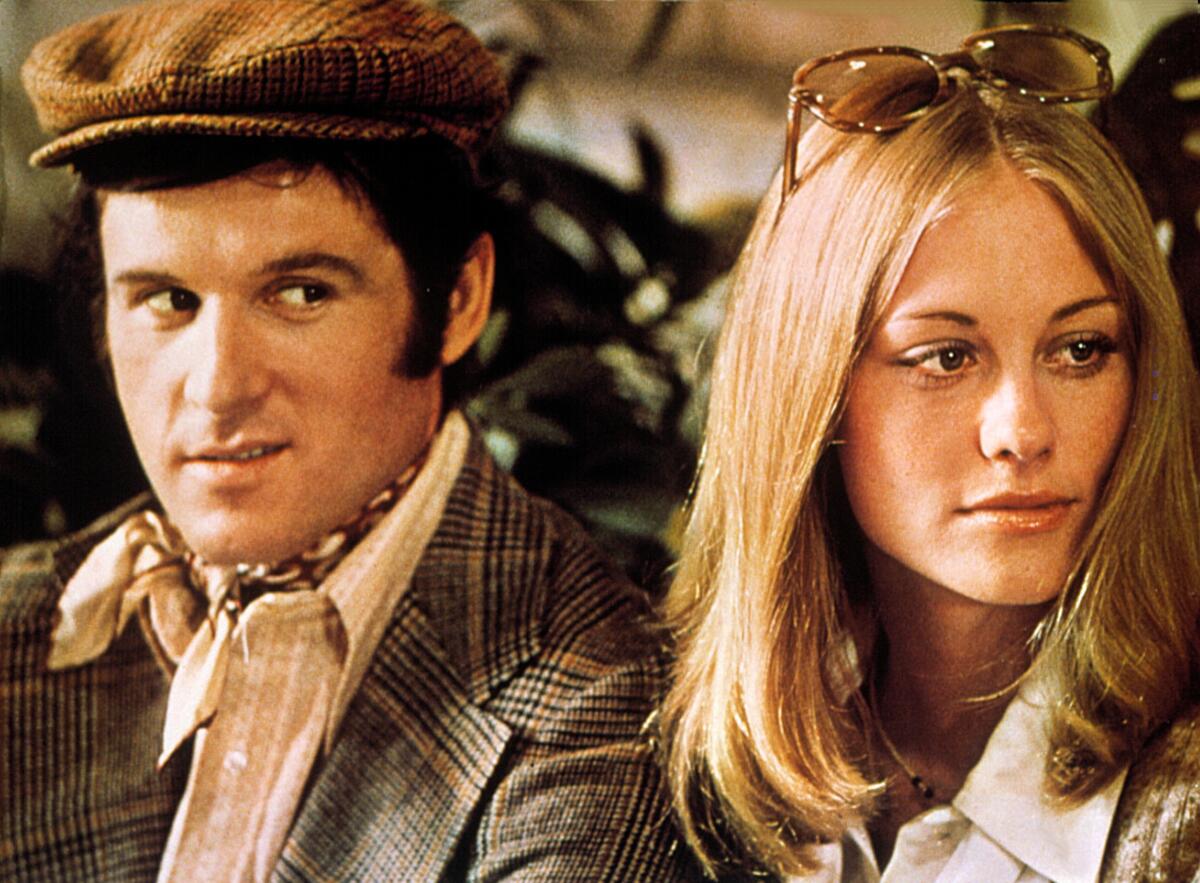
An image from 1972’s “The Heartbreak Kid,” starring Charles Grodin and Cybill Shepherd.
(LMPC via Getty Images)
We have mentioned Elaine May’s 1972 “The Heartbreak Kid” in these parts before, but any time it screens is worth mentioning. The Eastwood Performing Arts Center will be screening the film Friday and Saturday from the 2K scan of a 16mm print overseen by film historian and programmer Elizabeth Purchell. (I spoke to Purchell about creating the scan last year.) Cybill Shepherd, one of the film’s stars, will be there to introduce the Friday night show.
Long notoriously difficult to see because of rights issues, the film is back in regular rep-house rotation thanks to this new scan — a true treat for local audiences. Seeing the film with a roomful of people laughing along is an experience not to be missed.
Directed by May from a screenplay by Neil Simon, the film stars Charles Grodin as a man who deserts his new bride (Jeannie Berlin) on their honeymoon so he can pursue another woman (Shepherd).
In a review at the time, Charles Champlin wrote, “We are in the presence of a harsh social commentary, revealing again the dark side of Simon’s humor as well as some of Miss May’s own angers (reflected in her first feature ‘A New Leaf’) about the men having it their own way, to everyone’s discomfort.”
‘Bully’ and ‘Another Day in Paradise’
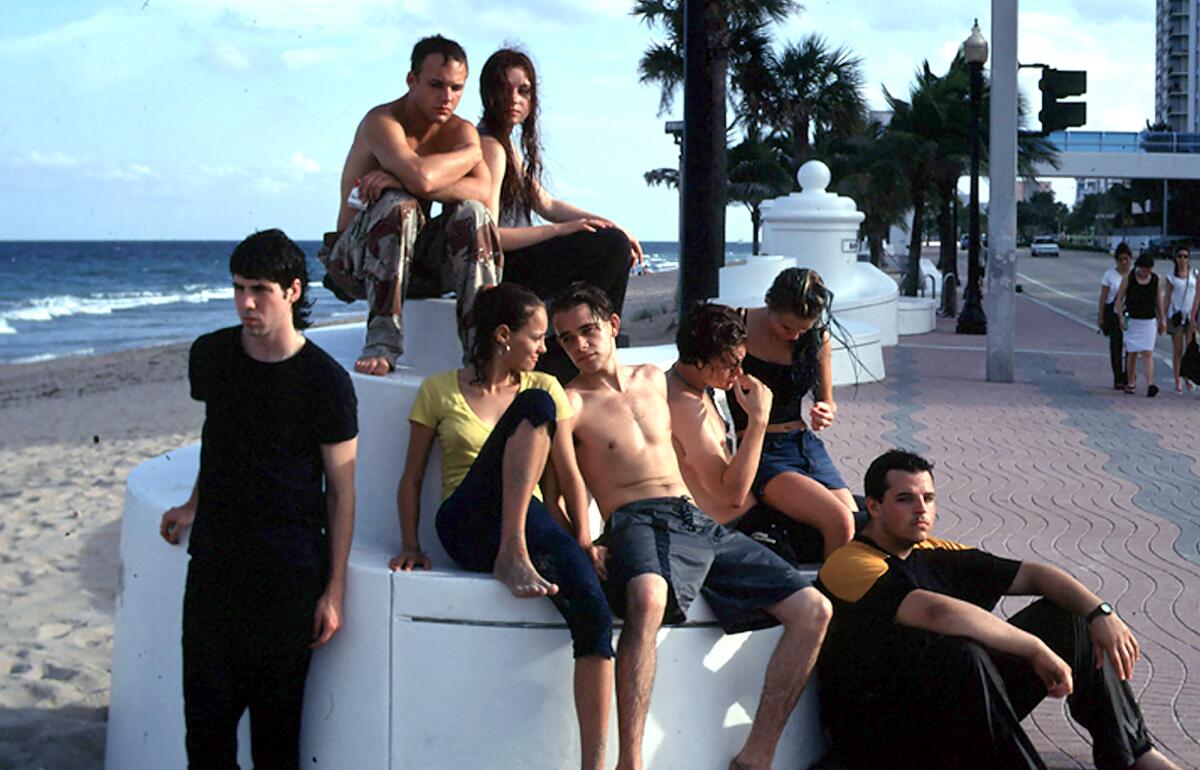
Brad Renfro, Bijou Phillips, Nick Stahl, Rachel Miner and cast in the movie “Bully.”
(Tobin Yelland / Lionsgate)
Though photographer-turned-filmmaker Larry Clark is now largely known for his 1995 debut feature “Kids,” he did go on to make other films. The New Beverly Cinema will spotlight two of his best with 2001’s “Bully” and 1998’s “Another Day in Paradise” as a double bill Monday and Tuesday.
“Bully” is based on the 1993 true story of a group of South Florida teens who murdered someone in their own circle of friends. Graphic, sweaty and sleazy, the film has an emotional and psychological intensity that makes it deeply disturbing. The cast includes Brad Renfro, Nick Stahl, Bijou Phillips, Rachel Minor, Kelli Garner, Michael Pitt, Daniel Franzese and Leo Fitzpatrick.
In a review of the film, Kevin Thomas compares “Bully” to “Over the Edge” and “River’s Edge” for its study of disaffected youth, noting, “Clark presents virtually all the young people in his film as doomed by clueless parents, a boring, arid environment saturated with images of violence and their own limited intelligence. Yet Clark so undeniably cares for these kids, illuminating their out-of-control rage and passions with such clarity, that it’s hard to dismiss him as a mere sexploitation filmmaker.”
Clark’s second feature, “Another Day in Paradise,” is still arguably his most conventional film, something of a post-Tarantino riff on “Drugstore Cowboy” as a young drug-addicted couple (Vincent Kartheiser and Natasha Gregson Wagner) fall under the tutelage of an older drug-addicted couple (James Woods and Melanie Griffith) who introduce them to a life of petty crime.
In a review, Thomas said, “‘Another Day in Paradise’ is as mercurial and reckless in tone as are its junkie characters, and Clark catches all these quicksilver shifts with unstinting perception and even compassion. As contradictory as it is energetic, the film takes as many risks as its people do and as a result strikes a highly contemporary nerve.”
A riveting and shockingly candid feature by Richard Natale chronicled the behind-the-scenes struggles between Clark, actor Woods (also a producer) and co-producer and co-writer Stephen Chin over final cut of the movie. Things reached a head on the evening of the film’s world premiere at the Venice Film Festival, leading to this most unusual quote from Chin: “The Larry Clark that punched me out in Venice is not the Larry Clark I know as a friend.”
For his part, Clark, who checked himself into rehab soon after that incident, said the attack came after a day in which he did “about 40 interviews and had about 60 margaritas. I was out of control. I have no defense. My motto is to never plead guilty. But in this case, I plead guilty.”
